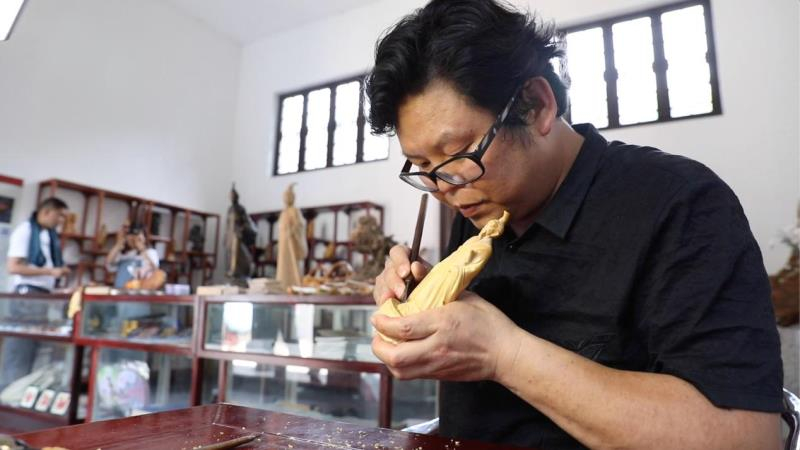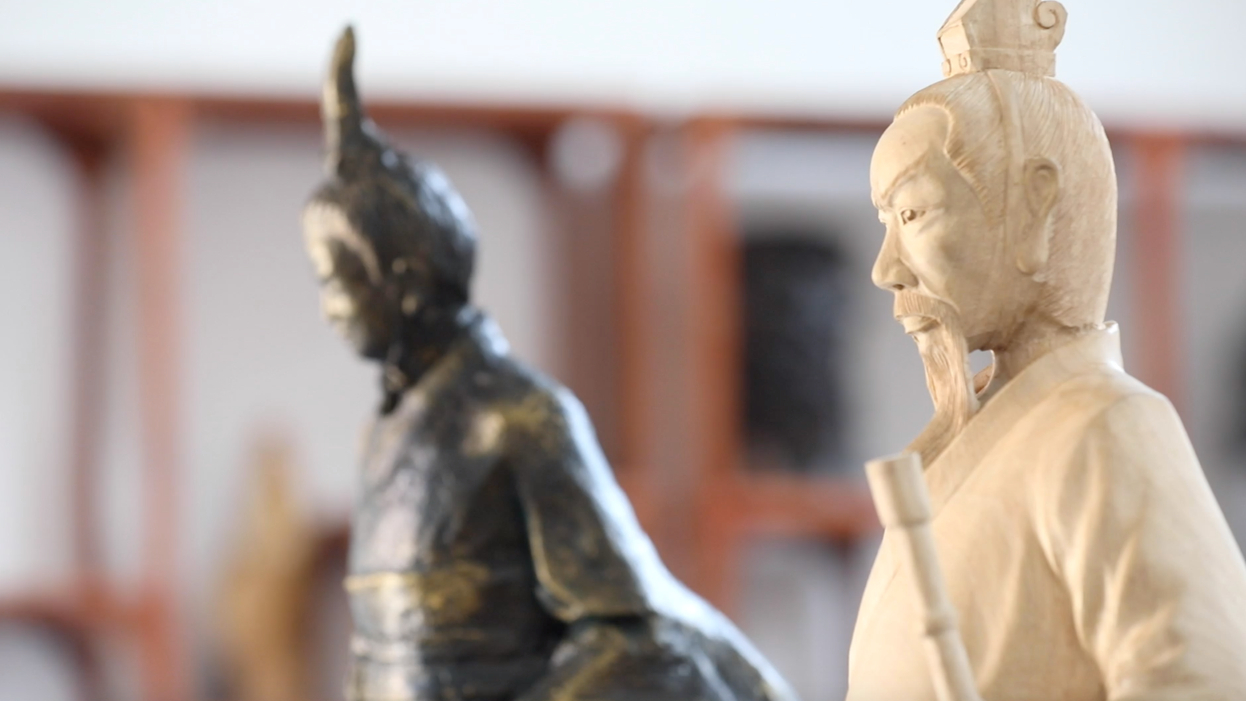
Culture China
18:45, 07-Jun-2019
Woodworking master tells story of ancient patriot through carving
Updated
11:35, 08-Jun-2019
By Zhao Yunfei, Meng Mingwei, Zhang Youze
02:13

Qu Yuan is a patriotic icon commemorated by Chinese people for thousands of years. His birthplace, Zigui County in central China’s Hubei Province, is now home to some 500 intangible cultural heritage inheritors. The ancient town's rich cultural background nourished the development of many handicrafts.
Nobody knows exactly how Qu Yuan looked like, but 42-year-old wood artist Liu Zhihua has been carving ancient statues of the poet since he was young.
"Qu Yuan was very slim, according to records in historical documents. He was a little arrogant but also had integrity," Liu said.
Liu said the older he grew, the more he understood Qu Yuan's situation. He puts his emotions into artistic creations.
"Each of my finished pieces differs from the others. That's the beauty of handicrafts. Unlike machine carving, which are all the same," Liu said.

Liu Zhihua's carvings of Qu Yuan. /CGTN Photo
Liu Zhihua's carvings of Qu Yuan. /CGTN Photo
Liu's store is located in an ancestral hall of Qu Yuan, a tourism site for visitors to come and pay tribute.
Woodcarving is an intangible cultural heritage. Liu hopes more people can learn of Qu Yuan's spirit through his work.
Qu served as national defense minister to Emperor Zhou and was loved by the people. He threw himself in a river after the Chu State was conquered by the Qin State. People raced in boats in search of his body, an act that gradually became a cultural tradition during Dragon Boat Festival.
The festival falls on the fifth day of the fifth month of the lunar calendar, which was the date Qu Yuan died in the year 278 B.C.
South Korea nominated its Dano Festival, equivalent to China's Dragon Boat Festival, to be added on the UNESCO Intangible Cultural Heritage list in 2007. Some saw the move as a threat to the Chinese culture, but others disagreed.

The story of Qu Yuan was turned into a theatrical work. /CGTN Photo
The story of Qu Yuan was turned into a theatrical work. /CGTN Photo
"The Dragon Boat Festival culture not only belongs to Zigui County but also belongs to China and the rest of the world. We should set an inclusive mind to view cultural development. If we believe that one culture only belongs to one place, that's not appropriate, and it does not fulfill the current development trend of our society and economy," said Yang Yong, head of Zigui County.
Zigui has its roots in the Dragon Boat Festival culture. People are proud of their identities and the town relies on its tourism industry for income. But the Dragon Boat Festival celebrations only last for a month, and that's why the local government is focusing on promoting its intangible cultural heritage to attract visitors year-round.
"In the past, many people thought that the Western civilization was more advanced. Now, by learning about Chinese intangible cultural heritage, people realize that our own culture is also rich. It can increase people's confidence in their own culture," said Yao Weijun, a history and culture professor at Central China Normal University.
To that effect, many Chinese art performances had been staged in various communities.
Artists have vowed to protect their folk culture, with many saying the best way to do so is through effective education and promotion.

SITEMAP
Copyright © 2018 CGTN. Beijing ICP prepared NO.16065310-3
Copyright © 2018 CGTN. Beijing ICP prepared NO.16065310-3